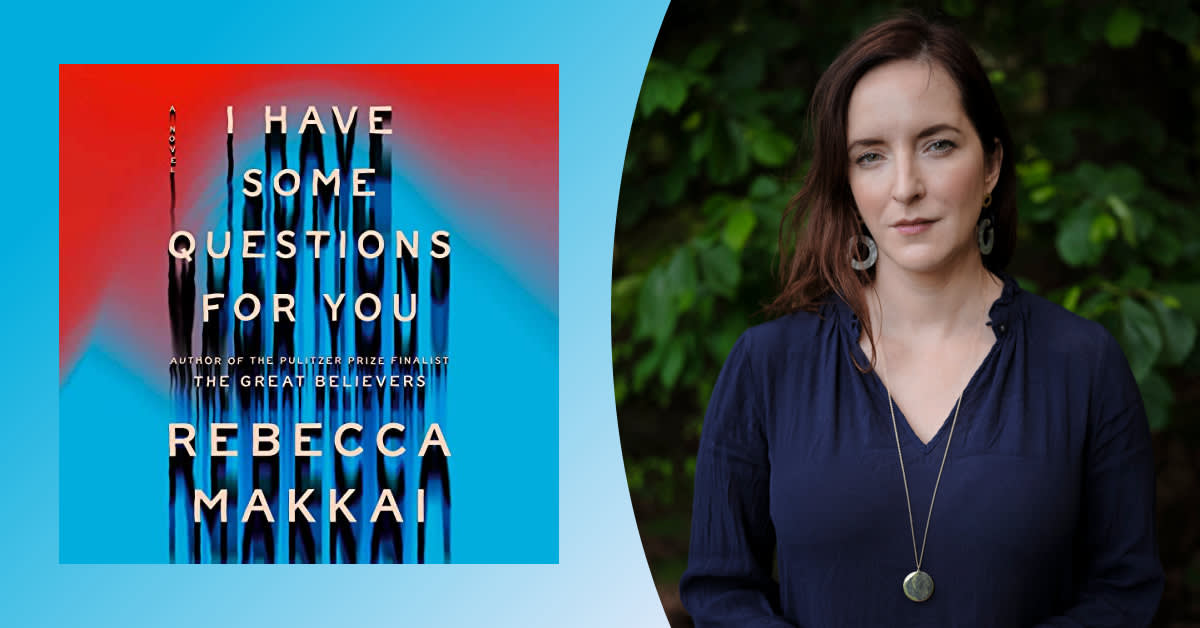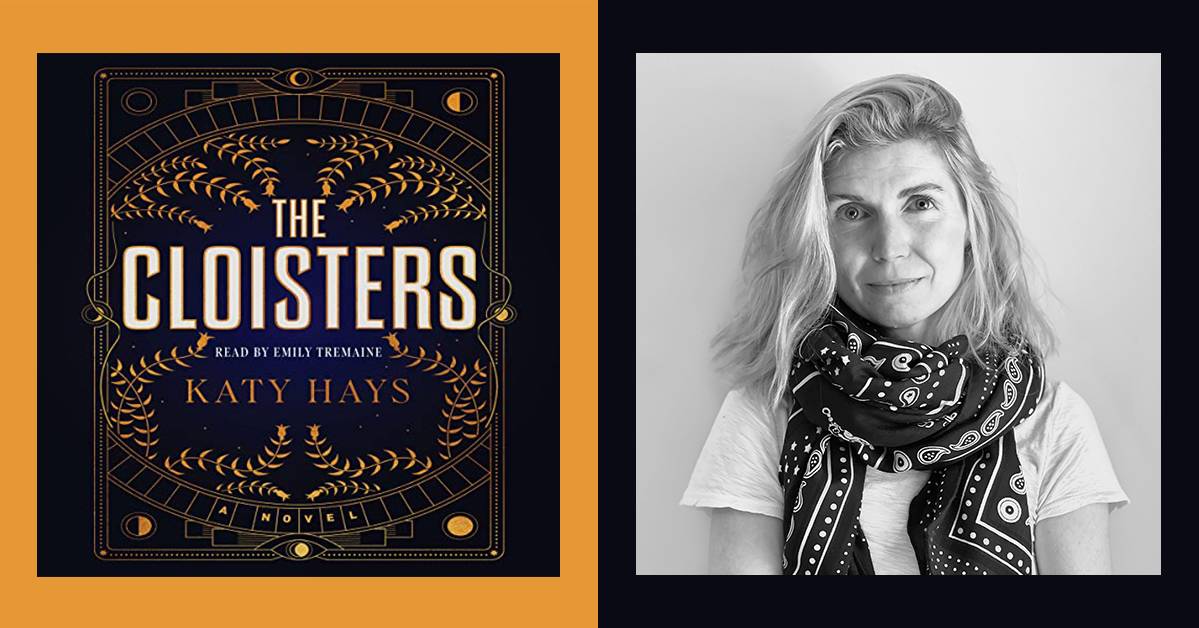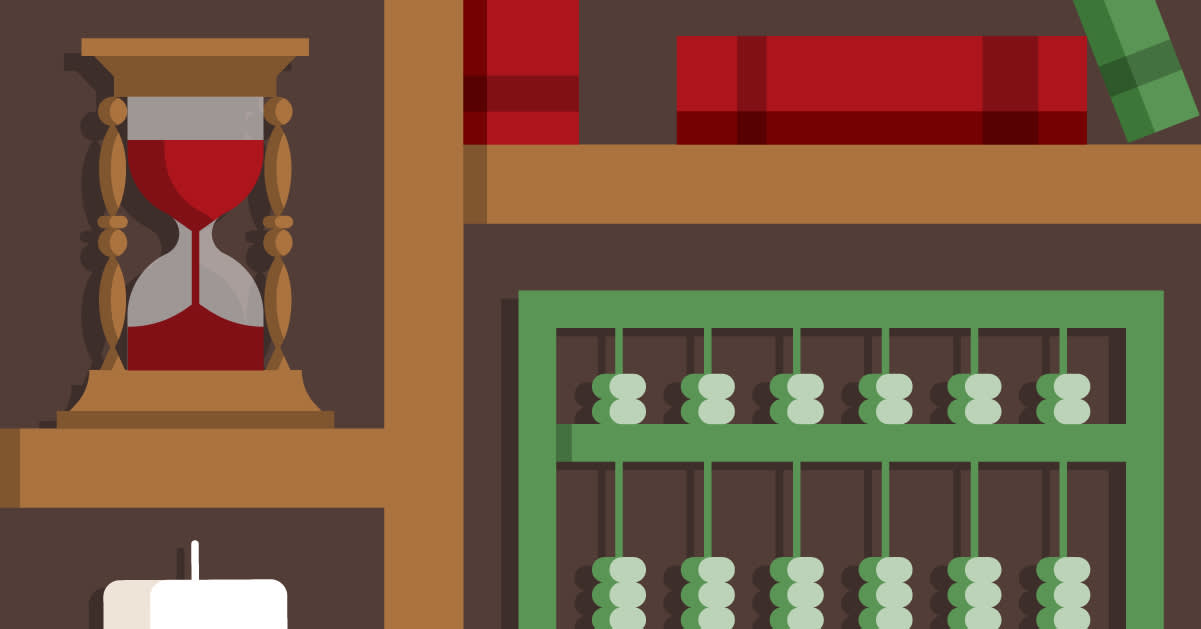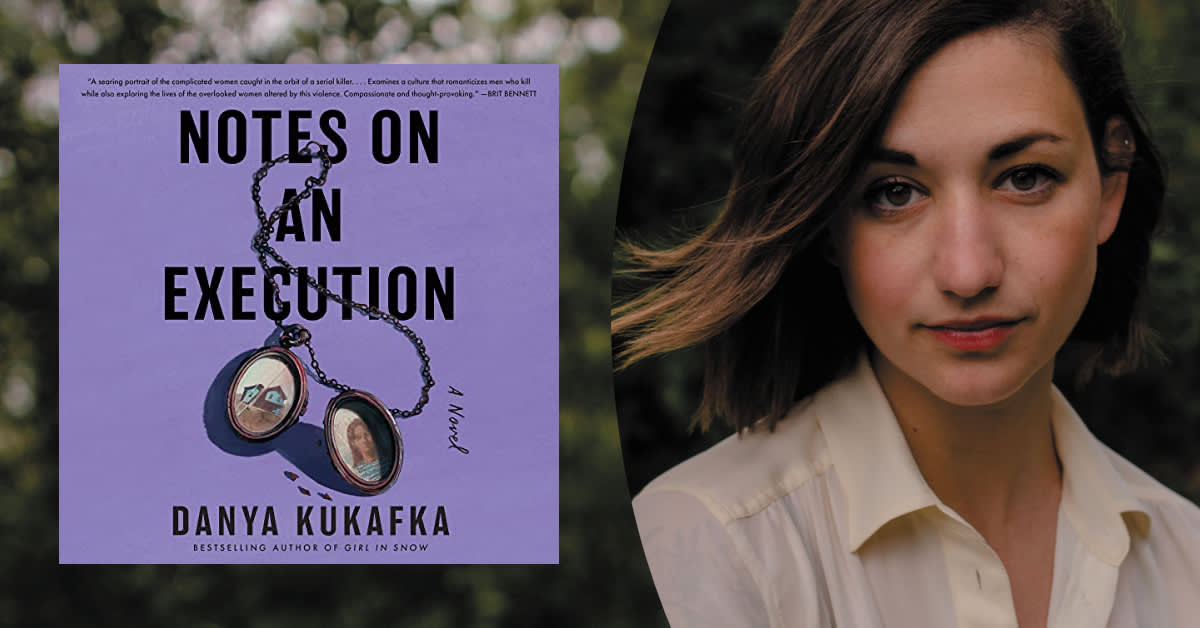Rebecca Makkai's new novel, I Have Some Questions for You, follows a film professor and podcaster named Bodie Kane who returns to guest teach at the boarding school where her former roommate was murdered, just as a new podcast emerges reopening the case. It’s a stirring investigation into collective memory and a deeply felt examination of one woman’s reckoning with her past. We asked the author about the 1990s boarding school setting, the inherent good and evil of podcasts, and what she hopes listeners will take away from this story.
Audible: Why did you decide to tell this story now? What makes this the right time to reexamine life in the 1990s?
Rebecca Makkai: On the personal level, I'm in my 40s, like my narrator Bodie, and I do think that's a time when we start to look back on our own adolescence through a different lens. Partly because so much time has passed, and partly because so many of us have teenagers (my oldest is a ninth grader), which tends to highlight contrasts between generations but also to toss us right back into our own memories of high school.
More broadly, I do think we're looking back to the 1990s with both a nostalgic and a critical eye right now. We didn't know at the time that we were living at the end of something, or rather right before the start of something; those last days before widespread internet usage were innocent in their own way, but they seem like the dark ages in others. Without the dissenting voices that the internet amplifies, we had this much more consolidated mindset, sometimes for better and often for worse. There was this mainstream narrative that we'd mostly arrived at a sort of post-sexist, post-racist, vaguely LGBTQ-friendly place. We were so self-congratulatory, as a society. Many people—maybe most people—knew and felt otherwise, but we lived in a world much more ruled by public consensus than we do now. And you look back now and you can see all this rot.
The 1990s were pretty exactly my high school and college years (I started high school in '91 and graduated college in '99), so they were the decade that formed me, especially in terms of dating and sex and gender roles. I spent so much of that time learning how to pretend to be okay with things I was not, in fact, okay with. And it wasn't really until #MeToo that I started coming to terms with that self-denial. One thing that amazed me about the early days of #MeToo was the way everyone was looking back not only on moments of outright coercion or violence, but on smaller, more insidious things, and talking about the damage a thousand little cuts can do.
Do you think true crime podcasts are inherently good, revealing mostly truths, or inherently bad by turning tragedy into entertainment?
I don't think they're inherently anything; like any medium, they can be great or terrible, and they can do good in the world, or do bad, or bring about some combination of both.
I'm particularly interested in podcasts like Undisclosed, which reexamines what are most likely wrongful convictions. That one in particular has brought about some real change and awareness. And I'm interested in podcasts that put information out about cold cases with the express goal of finding information investigators didn't have at the time. This is particularly useful for cases that did not capture the public imagination—for instance, ones with marginalized victims who don't get much media attention, if any. And then I love hearing stories about cold cases from, say, 1922; the victim's family isn't going to hear that and be retraumatized, and there's validity to examining old cases using new forensic technology—for instance, solving things using familial DNA.
I think everyone's wary of podcasts that take recent cases and simply use them as entertainment fodder. True crime as entertainment isn't anything new, though, or anything specific to podcasting. You can look back through history and see, for instance, the lurid fascination in the way newspapers covered big murder cases in the 1920s. But the best current media about new cases makes a real effort to highlight social issues, and it examines the psychology of why people—especially women—are drawn to these stories.
“The best [true crime] media about new cases makes a real effort to highlight social issues, and it examines the psychology of why people—especially women—are drawn to these stories.”
What led you to writing portions of the story (including the title) from the second person point of view?
The whole novel is both first person (one narrator is telling the story) and second person (she's telling or thinking the whole thing at a certain person). There's always this unspoken question, in any novel, of who is being spoken to. It's not usually answered literally, but the author still has to make decisions about, for instance, how much is explained (is the narrator narrating as if the listener already knows what's going on, or as if we're new on the scene?).
I actually can't remember what first made me experiment with the second person for this particular book. You try out a lot of different things when you're drafting, but then you only keep the ones that work. It was something I tried out early on for some reason, and then everything started clicking into place.
That second person allowed Bodie to express her anger directly, and to demand answers from someone who failed her—and that's when the voice and the angle and the point of telling started to make sense for me. It's like when you've been doing a jigsaw puzzle, looking for missing pieces, and you suddenly see that these two big sections fit together and all your missing-piece mysteries are solved at once. If you're lucky, you get that feeling a few times when you're drafting. This was one of those moments.
“I love the way an audiobook can permeate your life, the way it follows you around town so that a certain street corner might forever be imbued with the scene you were listening to right there.”
What do you hope listeners will take away from this story?
I'm always hoping first and foremost that people will be drawn in and entertained. But of course I'm not just writing a book of dad jokes or something; this is a novel that I tore out of myself, thread by thread, over five complicated years. I'd love for it to invite readers to cast an eye back on the things they took for granted in adolescence. Not just the things they put up with, but also the systems they were part of, the ways those systems (of race, class, education, justice) might have harmed or excluded others. I'm not after a guilt trip for myself or anyone else, but an excavation.
I'm over the moon that Julia Whelan and JD Jackson, my first choices, were available for the audiobook—and I know they've done an amazing job. (I won't listen to more than a few seconds myself, otherwise I'd want to start editing again.) I love the way an audiobook can permeate your life, the way it follows you around town so that a certain street corner might forever be imbued with the scene you were listening to right there. Audio has become a bigger and bigger part of the publishing world, and of my own reading life, since my first novel in 2011, and it makes me happy to look around and know that some of those drivers on the highway, and some of those people with AirPods on the train, are immersed in great books.
I bring this up partly because for me this is somehow a fundamentally ambulatory book. It's a story that came clearer and clearer as I walked around my own high school campus and my own college town, and I love the idea of people walking literally or figuratively through their own past as they listen. If anyone out there manages to stroll their old high school grounds while they listen to this novel, I'd love to hear about it—what they remembered and discovered.





